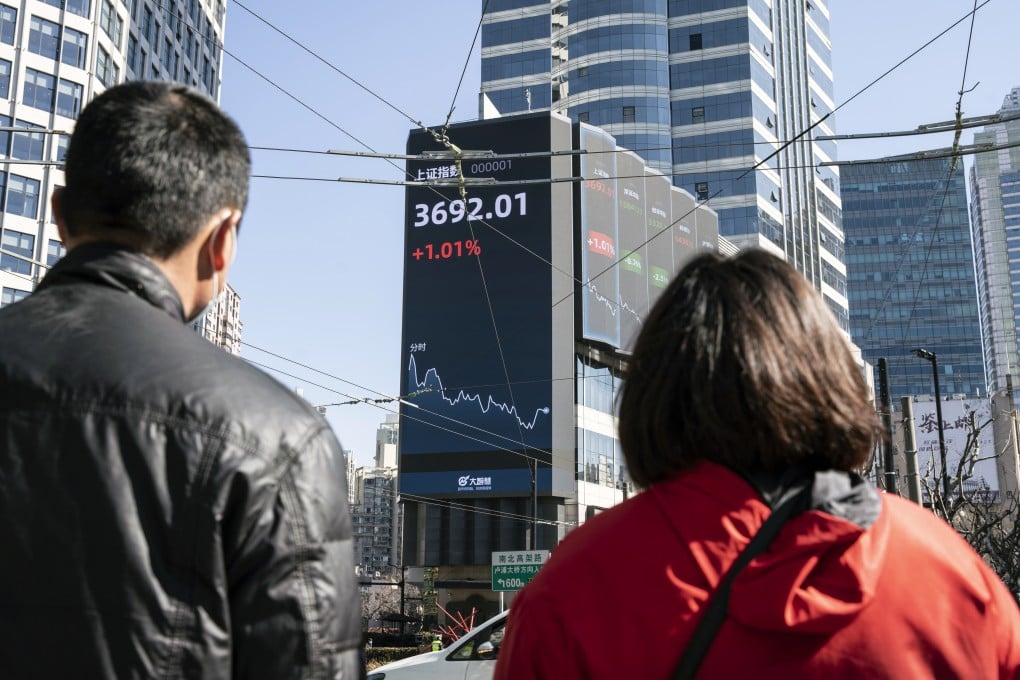Advertisement
The View | Why China’s A-share market is on such a volatile, bumpy ride
- Falling company earnings expectation, a credit crunch, geopolitical tensions and pressure from rising US bond yields are a few factors
- Beijing will want to address the volatility but investors should be aware that the A-share market remains complex
Reading Time:3 minutes
Why you can trust SCMP

China’s domestic A-share market has been on a bumpy ride since the Lunar New Year holiday, with many star stocks falling like stones. The big volatility has surprised many investors as the outlook on China’s economy remains stable.
In contrast, major global equity indices have been on solid footing this year with a recovery from Covid-19 expected in both the United States and the European Union. In comparison, China’s A-share market has become a clear underperformer. What are the causes of this gloom?
For a start, China’s economic growth has visibly decelerated after a promising V-shaped recovery in the second quarter of last year. The market consensus is that China’s economic growth rate is likely to have peaked in the first quarter of this year, and will gradually slow to around 5-6 per cent for the rest of the year. Corporate earnings would probably follow the softening trend over the coming quarters, suggesting that the market needs to adjust its expectations of companies’ profits accordingly.
Advertisement
Meanwhile, a tapering of China’s monetary policy is clearly on the cards. Compared to the “emergency mode” during the Covid-19 pandemic, monetary policy will become much less accommodating over the coming year. Recent crackdowns on illegal financing and new tough curbs on the property market have further shaken market confidence.

A few days before the National People’s Congress, Guo Shuqing, chairman of the China Banking and Insurance Regulatory Commission, warned of the risks posed by shadow banking and the rise in non-performing loans. He also made it clear that the authorities would tighten its grip on internet financing platforms. Guo is widely seen as a regulatory “hawk” among the top Chinese officials and has consistently expressed concerns about financial stability. So, his latest tough pronouncements sent a big shock through the stock market.
Advertisement
China’s economy has always been highly correlated with its credit cycle, as have its capital and real-estate markets. Add in China’s early-stage austerity policy, and it is understandable that the A-share market is selling off amid a lack confidence. China’s latest credit crunch is expected to stretch into the coming year and past experience suggests that risk events are inevitable during the credit tightening process.
Advertisement
Select Voice
Select Speed
1.00x
